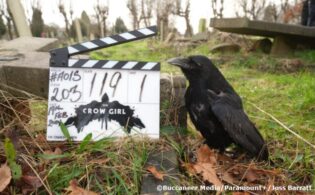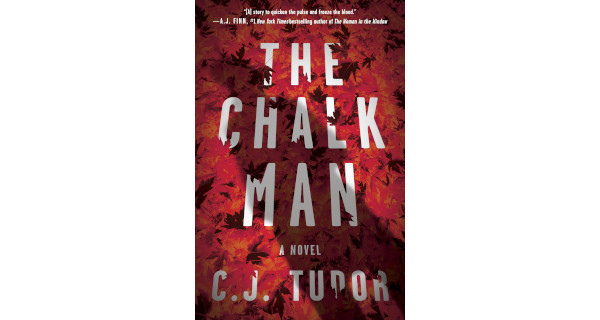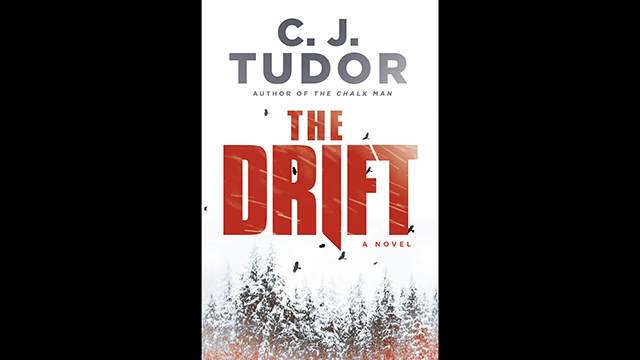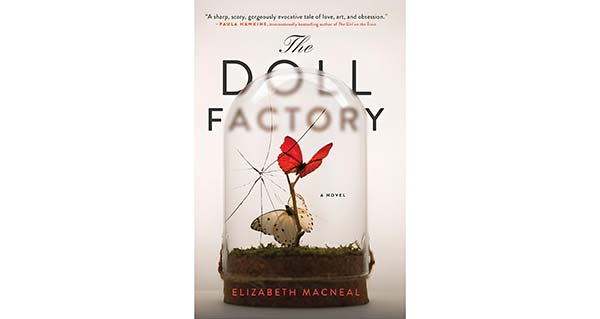Over the last few years, Buccaneer Media has been tapping into book-based IP and churning out successful adaptations of beloved novels, including Whitstable Pearl, Irvine Welsh’s Crime, The Doll Factory and The Burning Girls. Earlier this year, the company took the rights to adapt Erik Axl Sund’s best-selling thriller The Crow Girl for Paramount+ as well. Richard Tulk-Hart, co-CEO of the production company, tells TV Drama about Buccaneer’s overall creative ethos, the keys to producing book adaptations and navigating the current industry climate.
TV DRAMA: What is the driving force behind Buccaneer Media’s creative decisions?
TULK-HART: It’s belief in a story. Primarily, it’s belief in the writer that we bring on and allowing for action, emotion [and] jeopardy to come through and marrying that with the commercial requirements of an industry that’s in an interesting shape. It’s always driven by the creative. That’s what leads the company first and foremost. We believe that if a story is good and well-told, whatever is going on in the industry at the time, a cycle will come along and it will be right for the moment. It’s [about] marrying that creative with the commercial. That’s where we’re finding our success.
TV DRAMA: What has been working best in scripted lately?
TULK-HART: It’s a quiet market at the moment. There’s a state of change that’s been on for a bit longer than I think everybody thought it would. Things in the U.S. continue to work themselves out. [In] the busier areas, the likes of Acorn, BritBox, PBS MASTERPIECE, those that are very much focused on a specific audience, people are finding success. But equally, we’re still developing as if nothing is going on and the world is normal because it will right itself at some point. Nobody knows what it will look like necessarily, but everyone’s still going to need content. It’s just about where you’re going to go with it and how you’re going to finance and put it together. One thing that we talk about a lot is trying to ignore everything that’s going on around us. Our job in this whole equation is to create compelling, moving stories that are going to resonate with as big of an audience as possible, and if we were to listen to what everybody is telling us is happening and [saying], Oh, you should be developing X, Y or Z, [we would] quickly become irrelevant because the point of each individual company and writer and producer is to create their own vision, and sometimes people want to see us and listen to it and sometimes they don’t. Believe in what you’re doing.
TV DRAMA: Buccaneer does a lot of work with book-based material. Recently, you added The Crow Girl to the lineup. What do you look for in a novel to determine if it would be ideal for the screen?
TULK-HART: IP has been driving the industry now for quite a few years. Books are the obvious starting point for that, but equally, we look at stories from the papers and wider. The book adaptation has been a rich vein for us. We’ve [just] finished production on The Crow Girl. That’s a great example of a book that you would read and go, That’s not going to get translated directly to television. In the U.K. and the U.S., it’s one book. In the rest of the world, it’s a trilogy of books. It’s a multimillion-selling book. That obviously is a big part of it. If you’re going to go for IP, make it big. It’s already noisy, and it gives the broadcaster or the SVOD service or whoever it is an obvious marketing hook. That then leads to adapting to the screen. You take [The Crow Girl] by Erik Axl Sund, which we’re making for Paramount+, and then you take Whitstable Pearl, which we make for Acorn, and they couldn’t be further apart in terms of what they are, but at the core of both of those books is the action, the emotion, the jeopardy, strong characters, a sense of belonging. It’s relatability. And that comes whether it’s a dark story or not.
Equally, we pride ourselves with the likes of Irvine Welsh, who we work with. We’ve done season two of Crime for ITV—fingers crossed for season three. And we’re in the late stages of development and going out with the continuation of Trainspotting. In that, there’s a piece of IP that the world knows and loves. Then, you’ve got the likes of CJ Tudor. We made The Burning Girls, and we have also got her books The Chalk Man and the latest, The Drift, which is big and epic and world-building stuff. Whichever one of those it may be, at its core, is all those things that I’ve said. You can visualize, to an extent, those stories on television.
TV DRAMA: When you are working with book-based material, how much does Buccaneer work with the original author on the adaptation? And what are the keys to making a “good” or faithful adaptation of a book?
TULK-HART: The truth of it, with what we’ve done, in most cases, the authors haven’t actually wanted to be particularly involved in the adaptation. A few years ago, I would say we weren’t first in line to receive books, but what we do is lay out up front what we’re going to do with a book, and that may involve the agent and the author. Sometimes, you can largely stick to the book. That tends to be a fairly straightforward, easy thing to do. But if you’re not going to do that, make sure that you’re telling the author up front that this is the plan and that the author is comfortable with that, and [then] actually stick to that plan. There is so much in this industry. Just being straight with people makes life a lot easier down the road. But as I said, with the work that we’ve done, it tends to be [that] authors recognize their skill as a novelist, and they recognize the skill of scriptwriters. They’re quite different spaces to be in. And some can do both—Irvine Welsh, for example.
TV DRAMA: Is there anything more you can tell us about The Crow Girl?
TULK-HART: When we bought the rights to [the book], it was a great big tome of a thing. We then realized that it was, in fact, part of a trilogy across most of the world. At one point, it held the top three spots in the German book list. It is a much-loved piece of writing. Jerker Erickson and Håkan Sundquist, who are the writers, when they and The Salomonsson Agency agreed that we were the right people to make it, it came with a bit of responsibility. You are dealing with something that you know you’re going to adapt from the book. It’s not something you can translate straight from page to screen. But the team behind it [and] the incredible Milly Thomas, who led the writing room, have pulled together what I’m now seeing coming through. It’s an exciting, different piece of television that is surprising. That’s the best way of putting it. I can’t go into too much detail because [if I] give away too much, you really will miss the twists and turns, but it has been an exciting piece to work on in Bristol, which turned out to be a great place to work, with an amazing crew [and] a fantastic cast in Eve Myles, Dougray Scott and Katherine Kelly in the three leads. It’s an exciting one that hopefully does well so that we can go into season two.
TV DRAMA: With last year’s U.S. writers’ and actors’ strikes rippling throughout the industry, current economic conditions and just the overall state of the industry right now, how is Buccaneer navigating the current climate? Are you seeking different financing strategies, doing more co-productions, etc.?
TULK-HART: In a way, we’ve always done that. We have a very international outlook in terms of what we make, what’s on the slate and what’s in development. So, yes, co-production is one thing. It is a rough time, and I think there’s a case of needing to see out what is going on at the moment and not forcing a situation that’s going to result in a really well-written script being rejected simply because it’s the wrong moment in time. I think the first thing is to accept that there is a reset—probably an understatement. Work within that. We’re lucky enough that we made five shows last year, and we’re in production on two now, and we have another one coming later in the year, so we can, to an extent, see out the storm. But in the meantime, we are continuing in the way we’ve always worked. We’re not changing the way we develop, what we develop or who we work with. If anything, we’re doubling down on making the slate bigger and wider and ready for whatever comes next. I think if anyone says they know what is coming next, they’re either lying or they’re the people who are deciding what’s coming next. So, we’re just continuing to do what we’ve done in the last few years, and fingers crossed that will work.
TV DRAMA: Though no one knows for certain what’s coming next, what opportunities do you potentially foresee over the next year or two in the drama business?
TULK-HART: I think one of the big things that’s going to come is, [with] those massive shows that we’ve been seeing, some of them will still get paid, but that will largely be for the U.S., probably with owned IP and large-scale ownership. The SVODs will probably be doing territory-by-territory-based deals, which will bring the distribution world back to life. Co-productions are an inevitability that will keep going. In my personal opinion, the cost of production has peaked, and it will have to come down to fit in. Otherwise, nothing is going to get made, and that’s not an option. It’s always going to be about sticking to what you do, on the whole. Yeah, you need to pivot and change various bits and pieces, but whatever technology changes, the delivery mechanism is still into somebody’s home, their laptop, their telephone. And people are savvy. They know when they’re being cheated with a script. If you remain at a very high quality of development and work with the best talent, I think that’s going to be the way to see it through.
The world of independent film is probably going to see a bit of a comeback, particularly now, while you have nowhere near as much television being made at the moment. I’d say that’s going to continue for a few years. That makes talent availability something that comes onto the desk where it wasn’t before because everyone was so busy. Independent films have been hurt for quite some time. Are people a bit fed up with the massive action films that we all know have been running the cinemas for some time? I think certain age groups want to see different things. Younger age groups are the ones that have been, on the whole, fed in the film space. So, I think smart and interesting indie films will be a thing that we’re going to explore and are exploring. Just get through the rough patch, and the other side will bring a level of clarity that will allow for a proper strategy to be put in place rather than guessing.
 TVDRAMA
TVDRAMA






